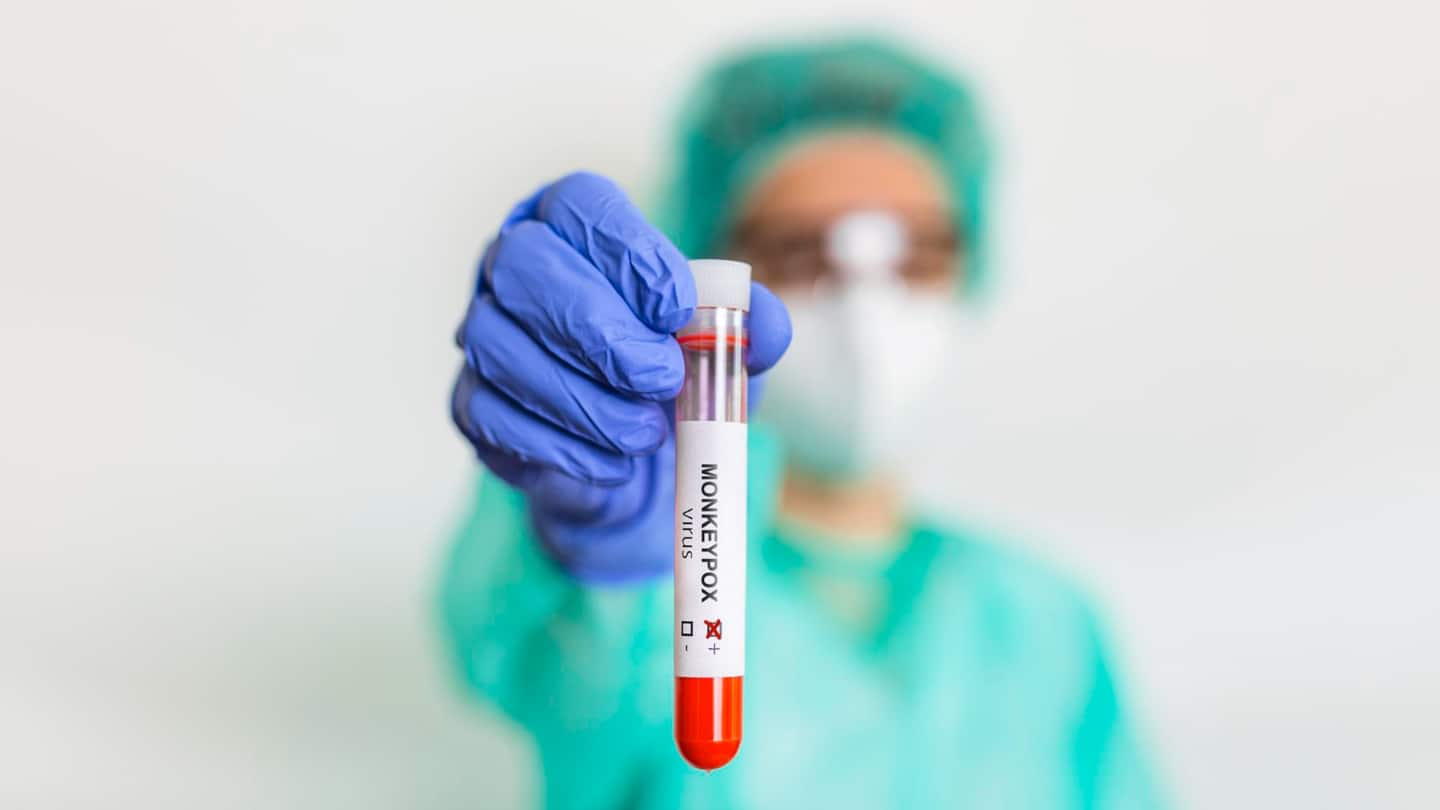
Here's how you can protect yourself from monkeypox
What's the story
Monkeypox is a rare disease that's growing at a gradual pace raising concerns across the globe.
From Argentina and Australia to Belgium and China, multiple regions have shown a rise in confirmed cases of this viral infection.
India has reported nine cases so far, with usually mild yet highly contagious symptoms.
Here is everything you need to know to protect yourself from the virus.
Context
Here's what our expert says
Monkeypox is a viral disease caused by the Orthopoxvirus.
Monkeypox can be prevented by practicing safer sex, avoiding close, personal skin-to-skin contact with an infected individual, and avoiding touch with any personal items, dressings, clothing, or beddings used by a patient.
Any contact with infected animals such as a scratch or bite can also cause monkeypox, hence should be prevented.
Maintain distance
Avoid close contact
Monkeypox belongs to the same family of viruses that caused smallpox, which naturally makes it highly communicable.
Avoid coming in close contact with someone who's infected with monkeypox.
In fact, keep away from people or even animals who have symptoms like fever, fatigue, chills, rashes, swollen lymph nodes, and headache.
Avoid shaking hands, sexual intercourse, or physical contact of any form with infected persons.
Hand hygiene
Wash your hands with alcohol-based rubs or soaps
Ensuring proper hand hygiene is essential at all times.
Use an alcohol-based hand rub or soap for washing your hands with water. Stop using ordinary soaps that aren't effective in killing germs.
If you're using an alcohol-based sanitizer, make sure it has at least 60% alcohol.
Remember to sanitize your hands thoroughly, especially before eating meals, touching your face, and after using the washroom.
Stay alert
Home isolation with essential goods
People with monkeypox who don't require hospitalization should be isolated at home.
Help them stay separately, with access to private washroom, bedding, utensils etc.
Limit your visits and make sure you're wearing full-length clothes, mask, and gloves if and when you enter their space.
Maintain isolation until they don't experience fever for about 72 hours or any new lesions in the last 48 hours.
Deep cleaning
Home disinfection
Various studies show that poxvirus can survive in linens, clothes, and on dark, cool, or humid environmental surfaces for about 15 days.
So to make sure you're safe, use an EPA-registered disinfectant and follow all directions to use.
Focus more on items that have been in direct contact with the infected person.
Infected people maintaining isolation should regularly disinfect the space they use.
For the safety of all
Avoid contact with pets
Both humans and animals can be infected with monkeypox.
It is advised not to indulge with your pets in any close contact activities including cuddling, kissing, hugging, and licking.
If your pet shows symptoms, take them to the veterinarian instead of abandoning or euthanizing them yourself.
If you show symptoms and haven't come in contact with your pet, drop them to an animal shelter.